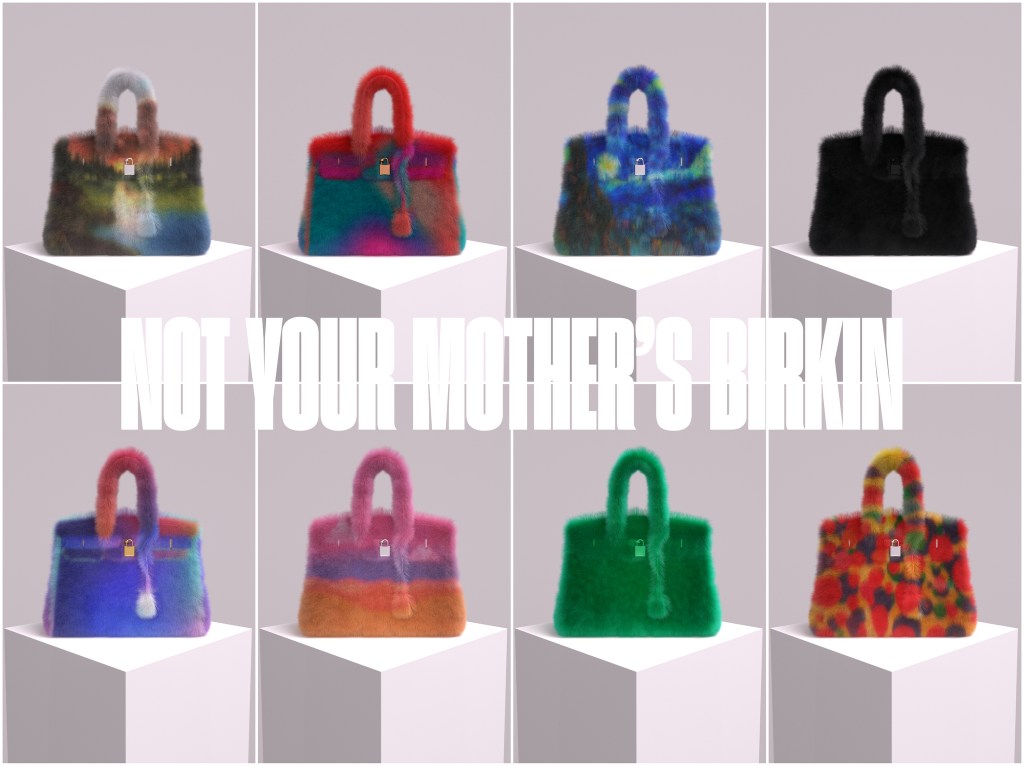In an effort to safeguard the integrity of trademarks in the burgeoning realm of the metaverse and NFTs, the Chamber of Digital Commerce has filed an amicus brief in the pivotal case between Hermès and the artist Mason Rothschild over the release of his “MetaBirkin” NFTs. The organization, which promotes the acceptance and use of digital assets and blockchain-based technologies, is standing by Hermès.
In March of last year, a nine-person Manhattan federal jury found Rothschild liable for trademark infringement, brand dilution and cybersquatting. They also found that the First Amendment does not bar liability. And then in June, U.S. District Judge Jed Rakoff granted the French luxury house’s request to permanently block Rothschild’s sales of “MetaBirkin” NFTs. Rothschild’s legal team initiated an appeal in June and submitted an appeals brief in November in New York’s Second Circuit court.
The case has been watched closely due to how it could be influential in how intellectual property infringement and First Amendment rights apply to NFTs and other aspects of the digital world. Hermès had sued the Los Angeles-based Rothschild, whose given name is Sonny Estival, for creating 100 MetaBirkins, colorful faux-fur Birkin-inspired NFTs, in November 2021. The luxury house argued that the NFTs confused consumers, diluted the brand, and impacted its in-the-works plans for NFTs. Rothschild’s lawyers countered that the two-dimensional digital tokens were a commentary on fashion’s fur-free initiative, an experiment in replicating the luxury handbag’s perceived value and also an act of artistic expression that is protected under the First Amendment.
By supporting Hermès in this case, the Chamber of Digital Commerce said it is not just advocating for one brand’s rights. “We are setting a precedent for the entire digital economy, ensuring that the trademarks which have become synonymous with trust and quality in the physical world carry the same weight in the digital one,” according to an online post highlighting the chamber’s statement in support of Creating Legal Accountability for Rogue Innovators and Technology (Clarity) Act.
The bipartisan Clarity Act would prohibit the federal government from utilizing blockchain technology developed by the Chinese Communist Party and other foreign adversaries to ensure these countries do not have a backdoor to access critical national security intelligence and Americans’ private information. The legislation is designed to protect American intellectual property, sensitive data, and national security by ensuring that the federal government takes this threat seriously and acts now with a coordinated response to counter potential risks. It was introduced last fall by U.S. Reps. Abigail Spanberger (D-VA-07) and Zachary Nunn (R-IA-03.)
In its amicus brief, which was filed in Manhattan federal court Friday, the chamber argued that traditional tests for trademark infringement, such as the likelihood of confusion analysis, should apply to digital goods and NFTs. The organization contends that our digital future “depends on the clear and consistent application of trademark law to avoid misleading consumers and infringing on brands’ and creators’ right to enter the metaverse when they choose.”
Rothschild garnered his own support in November when an amicus brief spearheaded by the Brooklyn-based viral art collective Mschf was filed. Many know MSCHF for routinely treading on designers’ and major brands’ trademarks through its limited-run product drops. Last fall’s brief was written by Harvard Law School’s vice dean for experiential and clinical education Christopher Bavitz. The brief included co-signers Cthdrl, Alfred Steiner, Jack Butcher, and the Authors Alliance, an organization that represents 2,300 authors.



